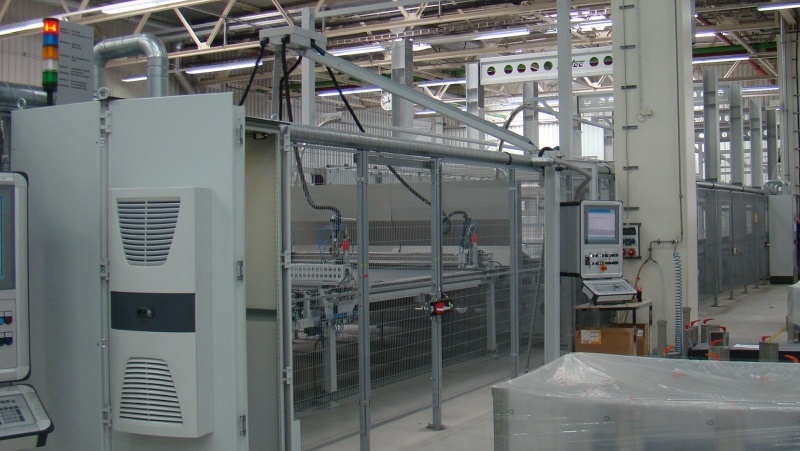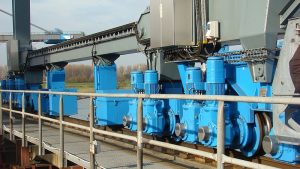Damage definition
Damage means that a product has been altered in such a way that one or more of its intended functions is substantially impaired or rendered impossible
Responsibility in the business enterprise in case of machine damage: Expert opinion on the preservation of evidence
In the event of technical damage to industrial machines, it is highly recommended to commission external and forensically experienced experts with the technical clarification. The expert opinion on the preservation of evidence provides substantiated documentation in the event of damage to machinery in a commercial enterprise.
Technical and legal analysis of the damage
It is of crucial importance to establish a maximum of technical information in a factual and, above all, substantiated manner in a very timely manner.
For this purpose, it is necessary to examine contracts both against the technical background and with regard to the legal agreements. Simplified, this can be formulated as follows:
“What was (agreed) and ordered? What was (actually) delivered?”
All available technical information on the technical claim is therefore compiled promptly and reviewed by experienced experts. As a rule, initial points of contact arise which can be specifically checked at the site of the damage during a technical on-site visit.
Independence of the investigation
The independence of the investigation is important because internal employees often do not have an eye for the essentials due to a lack of experience with claims. This is because most machine manufacturers or machine operators are inexperienced in handling technical claims (making or defending claims).
It often happens that evidence is destroyed through inexperience or that essential aspects are not even recognized.
Furthermore, there is another component, especially in the case of complicated technical issues: It is the fear of being or becoming a part of the issue oneself as an employee or internal department of an affected company. And also for this reason, it is advisable to obtain an independent presentation of the technical facts as well as facts for one’s own entrepreneurial interest and thus to use independent technical experts (experts).
Expert opinion on the preservation of evidence in the case of industrial machinery damage in commercial enterprises
The technical causes of the damage are determined – if possible – and responsibility is examined based on the cause . This concerns, among other things, framework agreements, technical drawings, dimensioning, materials, manufacturing, internal and external technical documentation, standards, quotations, orders, order confirmations, delivery bills, invoices, initial complaints, complaint correspondence, damage sequence and damage analysis, photos, laboratory reports, etc. are also checked, as are possible defects, which are often the reasons for product liability damage in the field of industrial machinery.
Other test aspects
Other technical and also legal inspection aspects are: The exact contractual chain, constructive responsibility, quality owed and delivered, outgoing goods inspections, incoming goods inspections and the detectability of the defect. Finally, accountability information is needed in terms of amount and must be determined. Existing claims, testability, their plausibility, the appropriateness of remedial actions, mitigation options, and value improvements, if any, must be considered and assessed.
All findings shall be substantiated in a party expert opinion (“expert opinion on the preservation of evidence”) within the scope of the preservation of evidence of the technical damage case.
Scope of liability for industrial machinery damage
The manufacturer of a defective product may be liable under public law, civil law or criminal law. In the vast majority of technical damage cases, civil law prevails.
The claim “the product is faulty or has a defect” is quickly made.
According to the technical findings in the expert opinion on the preservation of evidence, it must be examined which claims can be considered at all. In civil law they are mostly
- contractual claims (e.g. warranty for defects under purchase law, warranty declaration);
- quasi-contractual claims;
- Tort Claims;
- Claims arising from product liability.
Strategic planning
This is followed by technical-legal strategic planning for parties.
The technical evidence is secured on industrial machines by the experienced expert in the expert opinion on the preservation of evidence and also documented “court-proof” for submission for any upcoming legal dispute. Classic questions that lawyers have to evaluate afterwards are for example
- What is the status of the party according to the technical findings?
- Who has the burden of proof?
- Is there perhaps even an issue that is subject to public law?
Checking product defects in the expert opinion for the preservation of evidence in the case of machine damage
The following types of faults are to be checked for industrial damage to machinery and equipment:
- Development error / design error,
- Manufacturing defect,
- Instruction errors as well as
- Errors in product observation.
In order to successfully prove or, as the case may be, dismiss a claim in a court of law, it is not only necessary to know exactly what is meant by these types of errors. The error, if any, must be described in detail and justified.
"Art" of formulating objective findings in a factual manner
Decide on the success or failure of a technical presentation, for example through a party report to preserve evidence in technical damage cases
the objective findings and objectivity
of the expert opinion on the preservation of evidence or party expert opinion.
A mistake is not a mistake just because it is claimed. This is the reason why many presentations as well as expert opinions in court fail and also, above all, because the lawyers of the parties are, of course, experts in jurisprudence and just not in the technical discipline of damage to machines in the industry. They usually have to believe “their expert” because they do not have technical expertise. Therefore, it is particularly important for the success of a legal dispute for a party to have an experienced, precisely ascertaining and formulating expert on its side.
The most common reasons for product failures are:
- Time,
- Commitments,
- Cost pressure,
- professional overload of the acting persons.
Possibilities of technical preservation of evidence in case of damage to industrial machinery and equipment
In technical industrial damage, evidence must almost always be secured very quickly because production must continue, downtime damage must be minimized, and existing contracts with end customers must be fulfilled.
Two methods are available:
- the judicial “Independent Evidence Procedure” according to §487 ff ZPO or the
- Preservation of evidence on behalf of the party.
Efficient preservation of evidence, sometimes within a few hours of the occurrence of damage, is only possible in the party order. Legally, this is a party submission in a subsequent legal dispute.
Time advantage of the preservation of evidence in the party order
If an “Independent Evidence Procedure” is applied for via a court according to §487 ff ZPO, the court issues an evidence order after some time and commissions an expert who is bound by this order. Its findings have evidentiary character. The time factor, on the other hand, is problematic. Due to the legal constraints, several weeks, if not months, pass between the filing of the application and the execution of the on-site visit in the “independent procedure for the taking of evidence” by the court expert. In the case of technical damage to and with machines, this is actually always a knockout criterion, since the “time” factor is of great importance.
This is precisely why the
the preservation of evidence in the case of technical damage in mechanical engineering and plant construction in the form of a party expert opinion is generally preferable for reasons of time,
even if the evidentiary character legally (in the first step) falls short of an expert opinion in the judicial “Independent Evidence Procedure”.
However, a well-structured party expert opinion to preserve evidence will be taken into account in the legal dispute, especially since the party expert can be named as an expert witness/witness in the court proceedings as part of the presentation of evidence.
Findings in the expert opinion on the preservation of evidence
In the preservation of evidence in the event of technical damage to machinery and industrial equipment are always determined:
- State of a person or value of a thing;
- Cause of personal injury, property damage or property defect;
- Expenditure for the elimination of personal injury, property damage or property defect.
Determining the technical cause of damage necessarily means a purely technical investigation.
Preservation of evidence on the points of “condition” as well as “expense” always also means a value assessment, usually with a second value assessment and finally also an assessment of the amount of the damage. This is also very important for a possible legal dispute.
Example of an expert opinion on the preservation of evidence in the event of damage to machinery in commercial enterprises
One machine was ordered for industrial series production. By far the most favorable offer was ordered by the customer, who was to become the operator of the plant/machine after commissioning . The manufacturer delivered. Time and again, there were rapid shutdowns during operation. Serial production could not be started.
If it is not possible to find the technical cause as soon as possible and to remedy it, in reality in such typical cases tensions will arise very quickly between the customer/operator and the manufacturer.
You are currently viewing a placeholder content from Youtube. To access the actual content, click the button below. Please note that doing so will share data with third-party providers.
More InformationThe video shows an example of how the system comes to an abrupt standstill shortly after startup.
In the case of technical faults or alleged technical faults, at the beginning of a dispute it usually boils down to the manufacturer claiming that the employees of the purchaser/operator are not suitable.
The customer/operator basically sees the cause of the problem in the ordered product, machine or industrial plant.
What is the reason? Technical error or other reasons?
The findings in the technical expert opinion on the preservation of evidence clarify these issues so that lawyers have a basis for action – in whatever direction – in the aftermath.
It is very easy to imagine that the failure of a machine or plant for series production causes major business problems for commercial enterprises. That is why it is helpful to secure the evidence in a party submission by means of an expert opinion on the preservation of evidence before waiting for a long time until the “Independent Evidence Procedure” according to §487 ff of the German Code of Civil Procedure (ZPO) even gets underway in court, where an expert has been found as well as commissioned. This is also bound to the marginal conditions of the ZPO with for example also summoning periods. All this is omitted when an expert opinion on the preservation of evidence is commissioned by the party.
One thing must be included in the economic evaluation:
What business enterprise can afford long downtimes in production?
Thus, the preservation of evidence in the party order in an evidence preservation report means a faster ability to act after the evidence has been preserved.




